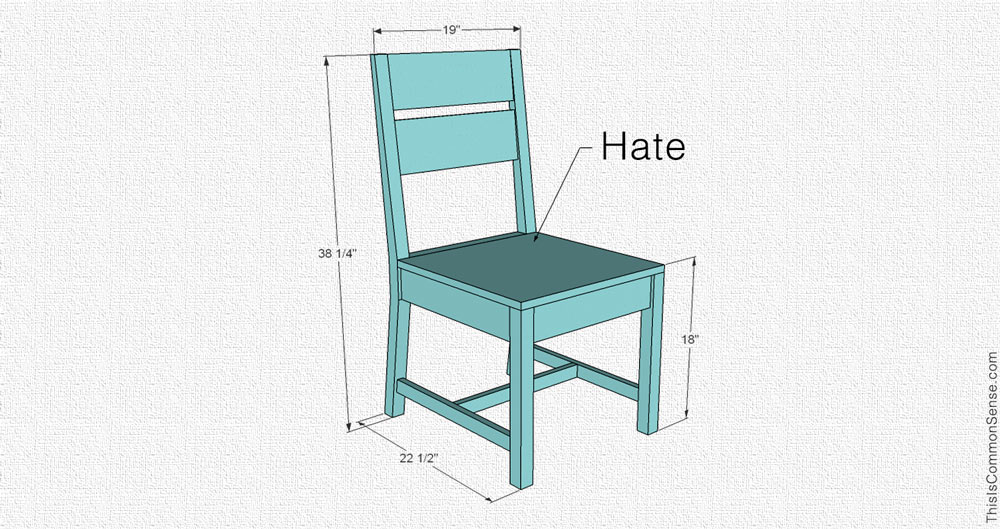Close but no cakewalk prize.
Modern social justice advocates sometimes come up with legitimate complaints . . . only to wander off terra firma and into cloud-cuckoo land.
“Microaggressions” is one of these airy wanderings, and Katherine Timpf has spotted another in the ever-growing catalog of social justice beefs:
The size of our society’s chairs is now being considered a “microaggression” against overweight people, according to a guide released by The New School, a private college in New York City.
Proponents of this cause, Timpf notes, insist that “Microaggression is not ‘Micro’ in Impact,” and that the best response to faux pas, slights, indelicacies, and what-have-you is snitching to the administration and intervention from same. Quite overbearing, if you ask me. During my too brief college stint it would have been considered an insult — a microaggression? — to think that young adults could not handle minor affronts such as so helpfully listed at The New School.
But let’s get real here. Microaggressions do not justify treating adults as children and setting up college administrators as in loco parentis tribunals — much less Molotov cocktails, sucker punches or bike locks in socks. At best, as has been pointed out elsewhere, Ned’s microaggression justifies Zed’s microretaliation. Nothing more.
So how does one micro-respond?
Manners; etiquette.
In olden times, a well-mannered person, when snubbed or otherwise insulted had the option of responding with a cutting remark . . . without any actual cutting, without even raising the tone of his or her voice.
Activists and collegians really should look into it.
And not bring up chair size: the micro-chair/macro-posterior issue has too many “microaggressive” jokes built into it.
This is Common Sense. I’m Paul Jacob.



